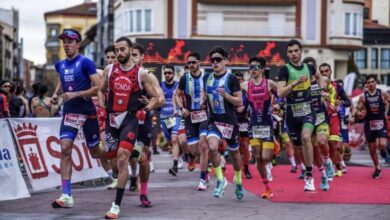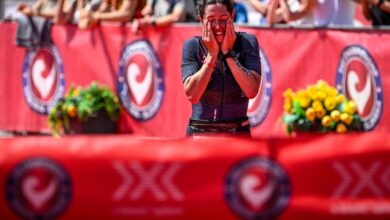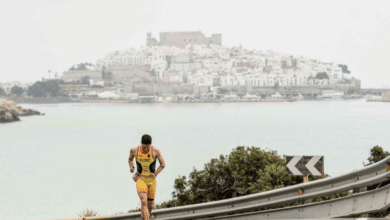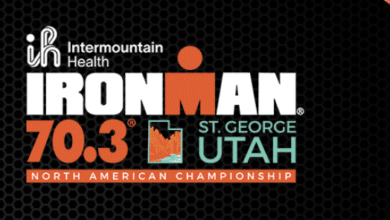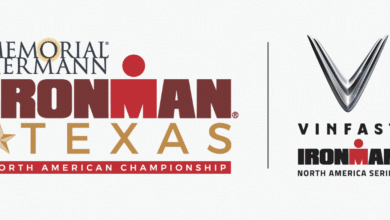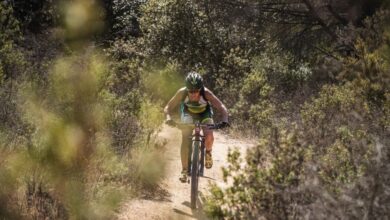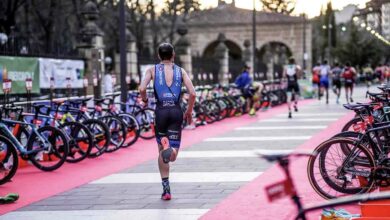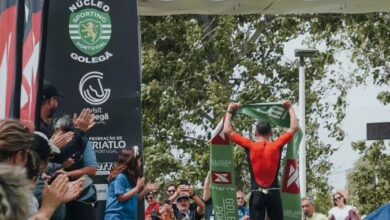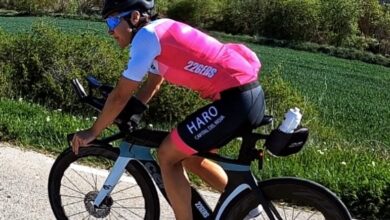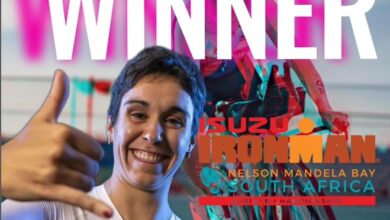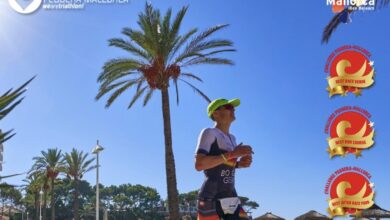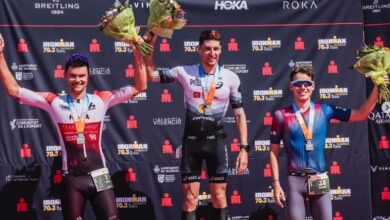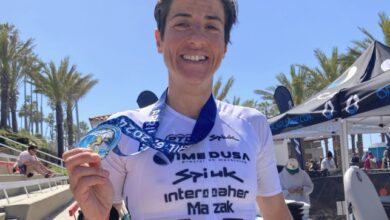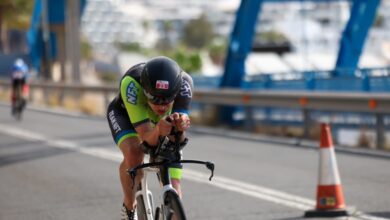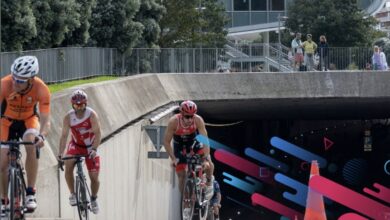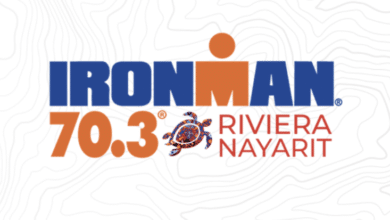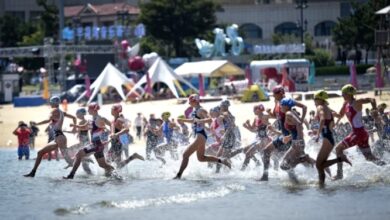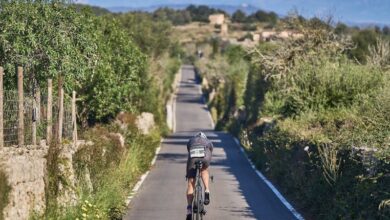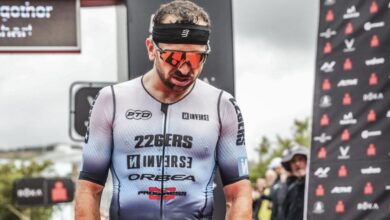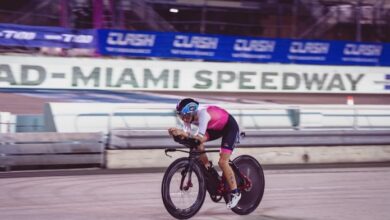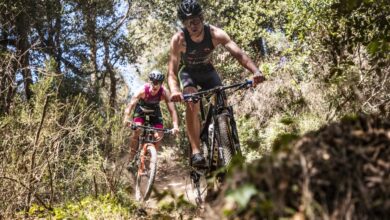Interview with Marta Jiménez, Champion of Spain of Media Distancia
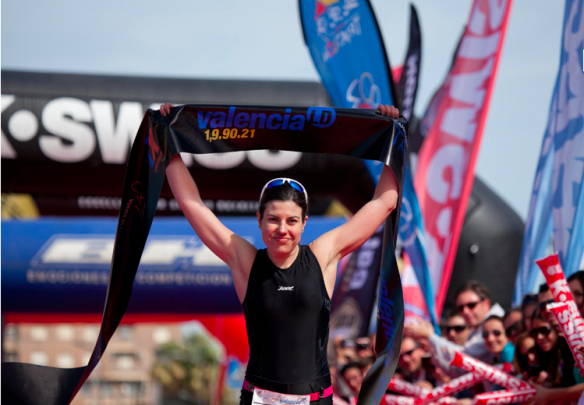
TN
Some of you may wonder how it is possible to be Champion of Spain in your first national Medium Distance event.
Well, that's how it happened last March, when the Madrid-based triathlete based in Galicia, Marta Jiménez, showed us her worth at the Spanish Middle Distance Championship held in Valencia, where she took first place on the podium.
With the aim of getting to know Marta a little more closely, passionate about this sport since she was 11 years old, today we wanted to do a brief interview with her:
Tell us about your beginnings in Triathlon. How was your first contact with this sport?
Since I was little, my father always instilled in me a philosophy of sports life, teaching me different sports and being the one who decided the level of involvement I wanted to have.
I remember that when I was 11 years old, I combined school with swimming training in the Real Canoe NC team, with ballet, karate, piano classes as well as alpine skiing in winter and mountain biking in summer.
At the age of 12 they told me about a triathlon team that was in Canoe and I was attracted to the idea of joining three sports in a competition. At that time, the lower category to do triathlon began at the age of 14, but Felipe Gutierrez welcomed me into his team and I began to compete as another junior, participating in 3 Olympic triathlons at the age of 12.
When entering the youth category (the cadets of now) I began to win Spanish championships in my category, I increased my dedication by complying with the training they sent me and I obtained several podiums at absolute level in Spanish championships in addition to my third place in the championship of the world and of Europe junior.
After a few years dedicated to your studies in communication and traveling the world, at what point do you decide to "return" to triathlon and what makes you "tip the balance" towards sport instead of towards the side of what they now call "a life normal"
I always knew that I would return to triathlon when my body was ready again. Already in third grade I resumed training with little regularity and training what I wanted, in the spectacular sports facilities of my university in New York. I remember training three hours in the afternoons between swimming, gym and running on the treadmill and returning to my residence over-trained walking slowly down the street.
I also had my circuits running through Manhattan, one of them of 1h45m bordering the island that I liked to do on a Sunday. In New York I competed in a duathlon and won an aquathlon. By the time I graduated, I had already worked as a psedo-employee intern at a media agency for six months. I realized that I had my whole life to compete in the business world, but to compete in sport I had these years.
Let's say that I tried the life that most people who do not do sports lead and it gave me a perspective that at that time I needed to learn and it enriched me, but the emotions that are felt when crossing a goal feeling that you have performed well, the fulfillment that brings the effort after a series of training, although it sounds masochistic, it is a way of life that I could not live without, it was like ignoring a part of me.
How was the return? Tell us something positive that you did not expect would happen and something that has not been as you expected and you have had to face it like that.
The return is being slower and more difficult than I thought it would be. One has the idea that by training for a few months you will be like before and it is not like that. After almost three years without training or competing, although your body grew with sport, the muscles start from scratch. Triathlon is a sport of accumulating years of training and I had to re-create the base from the beginning.
The body only remembers the technique, but loses its physical form. I was surprised when I was swimming, because not only did I maintain my technique but I also became more aware of my sensations and I have been able to improve both my technique and my times in the pool that have never been as good as before. With the bike I always had ease and to run the extra kilos are very noticeable.
To this day, I still need to lose two or three kilos to get back to my optimal weight to compete. Face it, you have to face the people you beat easily before. I have also had to face the same reasons why I left triathlon in the past, reflect a lot on them and learn to evolve. Assume that I lost a few very valuable years in my sports career and ask myself, what are you going to do now with the time ahead of you?
You practice a lot of sports. Why triathlon and not swimming, athletics, skiing…?
I am passionate about skiing, both downhill and cross-country skating. I actually thought about dedicating myself to competitive skiing before starting triathlon. In cycling I competed, I won two junior Spanish championships, I participated in two world championships and I would like to reconcile a cycling competition with triathlon. I am also a scuba diver and this summer I hope to make time to do some diving.
My other passion that I remember with nostalgia is ballet, I taught at school and every year we did a couple of shows and some exams at the British Royal Academy, but I couldn't dedicate myself to everything. I chose the triathlon precisely because there are three sports, in addition to the winter triathlon modalities that it is always fun to do some if you have the opportunity.
Do you think it is easy to be an elite triathlete? Do you think it is equated with other sports?
Being an elite is not the same as being a professional. It is one thing to be one of the best and another thing is to live from it. The elite triathlon is increasingly competitive and you have to take care of many specific details for each sport and dedicate many hours to it if you want to train them all.
On the economic level, fortunately there is more and more money at the international level. Compared with women's cycling, triathlon is in a better situation, but not compared to men's cycling for example.
What is the ideal environment to train in this sport and with what support does a triathlete need to be able to dedicate themselves 100% to triathlon and optimize their results?
In my personal opinion, the ideal environment to train triathlon is in a warm climate but one that allows you to train in the middle hours of the day, in an environment where you can have a pool and a beach, good roads with little traffic and varied terrain. , and long dirt tracks for jogging plus a running track and gym.
The truth is that Pontevedra is very complete for that and if it had a Canarian climate it would already be the ideal place. When it comes to support, surround yourself with people you can trust. The coach is important because although triathlon is a very lonely sport, you cannot reach top competition on your own. A federation and a team that supports you as well as a social life of family, friends and partner who are excited about what you do and a lot of patience ... hehe
In my case I appreciate the support of Globulonero in the cycling area, Zoot for shoes, neoprene and clothing, Spiuk for the helmet, glasses and cycling shoes, Usk Team & Management that collaborates representing me and KeepGoing that gives me a significant discount on sports nutrition .
What are your goals today?
Make progress and enjoy training and see how far my body goes. Apart from wanting to be competitive in ITU tests and see how the panorama evolves with the incorporation of the Sprint distance, dedicate myself to the professional Olympic circuits without drafting and incorporate some more medium distance tests depending on how my body responds.
If you want to know more about Marta, be sure to visit her blog: http://martajimenezjimenez.wordpress.com/
There are no previous results.







